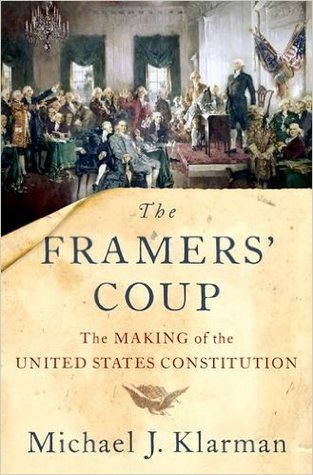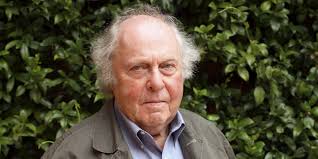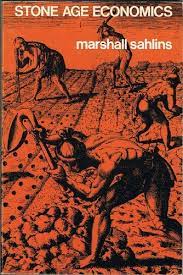I keep repeating that the necessary condition for capitalism is the political prohibition of people to a free access to subsistence land. And as I scour the Internet to see who else currently says this, I do not find anyone. There are many people who recognize and condemn the bad symptoms of capitalism, but doing this does not tell us what capitalism is. The only recent scholar who had zeroed in on the nature of capitalism was G. A. Cohen, whose insightful talk I have posted and transcribed here:
Criticism of Capitalism by G. A. Cohen, reflecting on Al Capp’s creature, the Shmoo.
However, scouring past literature, I find Max Weber’s characterization of capitalism totally in agreement with mine. The only comment that I wish to add to his analysis is this. Weber was interested in characterizing, what he called “rational capitalism.” This is the sophisticated capitalism which exists with bookkeeping and calculations. However, cruder forms of capitalism also exist. And both kinds are captured by his fifth characteristic — the existence of “free laborers.” These are people who have no free access to subsistence land.
Below is the relevant chapter from:
Max Weber, General Economic History (1923, English translation, 1927)
[275]
PART FOUR
THE ORIGIN OF MODERN CAPITALISM
CHAPTER XXII
THE MEANING AND PRESUPPOSITIONS OF MODERN CAPITALISM
Capitalism is present wherever the industrial provision for the needs of a human group is carried out by the method of enterprise, irrespective of what need is involved. More specifically, a rational capitalistic establishment is one with capital accounting, that is, an establishment which
determines its income yielding power by calculation according to the methods of modern bookkeeping and the striking of a balance. The device of the balance was first insisted
upon by the Dutch theorist Simon Stevin in the year 1698.
It goes without saying that an individual economy may be conducted along capitalistic lines to the most widely varying extent; parts of the economic provision may be organized capitalistically and other parts on the handicraft or the manorial pattern. Thus at a very early time the city of Genoa had a part of its political needs, namely those for the prosecution of war, provided in capitalistic fashion, through stock companies. In the Roman empire, the supply of the population of the capital city with grain was carried out by officials, who however for this purpose, besides control over their subalterns, had the right to command the services of transport organizations; thus the leiturgical or forced contribution type of organization was combined with administration of public resources. Today, in contrast with the greater part of the past, our everyday needs are supplied capitalistically, our political [276] needs however through compulsory contributions, that is, by the performance of political duties of citizenship such as the obligation to military service, jury duty, etc. A whole epoch can be designated as typically capitalistic only as the provision for wants is capitalistically organized to such a predominant degree that if we imagine this form of organization taken away the whole economic system must collapse.
While capitalism of various forms is met with in all periods of history, the provision of the everyday wants by capitalistic methods is characteristic of the occident alone and even here has been the inevitable method only since the middle of the 19th century. Such capitalistic beginnings as are found in earlier centuries were merely anticipatory, and even the somewhat capitalistic establishments of the 16th century may be removed in thought from the economic life of the time without introducing any overwhelming change.
The most general presupposition for the existence of this present-day capitalism is that of rational capital accounting as the norm for all large industrial undertakings which are concerned with provision for everyday wants. Such accounting involves, again, first, the appropriation of all physical means of production — land, apparatus, machinery, tools, etc. as disposable property of autonomous private industrial enterprises. This is a phenomenon known only to our time, when the army alone forms a universal exception to it. In the second place, it involves freedom of the market, that is, the absence of irrational limitations on trading in the market. Such limitations might be of a class character, if a certain mode of life were prescribed for a certain class or consumption were standardized along class lines, or if class monopoly existed, as for example if
the townsman were not allowed to own an estate or the [277] knight or peasant to carry on industry; in such cases neither a free labor market nor a commodity market exists. Third, capitalistic accounting presupposes rational technology, that is, one reduced to calculation to the largest
possible degree, which implies mechanization. This applies to both production and commerce, the outlays for preparing as well as moving goods.
The fourth characteristic is that of calculable law. The capitalistic form of industrial organization, if it is to operate rationally, must be able to depend upon calculable adjudication and administration. Neither in the age of the Greek city-state (polis) nor in the patrimonial state of Asia nor in western countries down to the Stuarts was this condition fulfilled. The royal “cheap justice” with its remissions by royal grace introduced continual disturbances into the calculations of economic life. The proposition that the Bank of England was suited only to a republic, not to a monarchy, referred to above (page 265) was related in this way to the conditions of the time. The fifth feature is free labor. Persons must be present who are not only legally in the position, but are also economically compelled, to sell their labor on the market without restriction. It is in contradiction to the essence of capitalism, and the development of capitalism is impossible, if such a propertyless stratum is absent, a class compelled to sell its labor services to live; and it is likewise impossible if only unfree labor is at hand. Rational capitalistic calculation is possible only on the basis of free labor; only where in consequence of the existence of workers who in the formal sense voluntarily, but actually under the compulsion of the whip of hunger, offer themselves, the costs of products may be unambiguously determined by agreement in advance. The sixth and final condition is the commercialization of economic life. By this we mean the general use of commercial [278] instruments to represent share rights in enterprise, and also in property ownership.
To sum up, it must be possible to conduct the provision for needs exclusively on the basis of market opportunities and the calculation of net income. The addition of this commercialization to the other characteristics of capitalism involves intensification of the significance of another factor not yet mentioned, namely speculation. Speculation reaches its full significance only from the moment when property takes on the form of negotiable paper.





